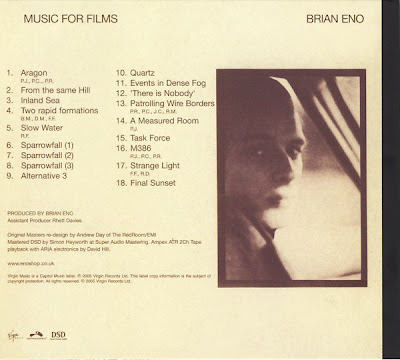In the late 1980s, I became devoted to the films made by Peter Greenaway. I loved his approach to his subject matters which were always questioning the process of nature and science, which leads to human sexuality as well as the structure of culture and politics. That's a mouthful I know, but Greenaway is nothing else but a Maximalist. His films are total overkill of images, sound, and thought. The fun of seeing his films in a public movie theater were the people who walked out during the screening. I have never been in an audience where so many hated what they were watching. Even in the lobby after the film, strangers have come up to me to express their displeasure of viewing his works. I imagine being an artist, this is highly complementary to his films. It's obvious that Greenaway is not for everyone, and nor is the music by Michael Nyman. One of the great director/composer relationships ever. Similar to Fellini/Nino Rota or David Lynch with Angelo Badalamenti. When Nyman left Greenaway, I stopped watching his films.
I discovered the soundtrack to "A Zed & Two Noughts" at "The Wave" record store (non-existent now) in Roppongi Tokyo. For whatever reason, Nyman's entire catalog at the time was available at this store. My first reaction when I heard this soundtrack album as well as seeing the film was that the music was speeded up to a ridiculous level. After a few minutes in, I grew to love it. Nyman is one of my favorite contemporary composers. This particular soundtrack is stunning. I never heard Harpiscord keyboard played as a speed metal piece or I should say, speed chamber music work. At the same time his melodies are humingable. He is also excellent in buildng up tension and then adding a sense of sweetness on top of it that floats in and out of the pace or beat. Beautifully orchestrated, with layers of textures, and its music that looks back to Baroque chamber music but clearly contemporary in its scope.












